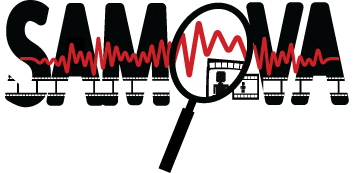TAPAS
Training Network on Automatic Processing of PAthological Speech
Main issues and objectives
There are an increasing number of people across Europe with debilitating speech pathologies (e.g., due to stroke, Parkinson’s disease, etc). These groups face communication problems that can lead to social exclusion. They are now being further marginalised by a new wave of speech technology that is increasingly woven into everyday life but which is not robust to atypical speech. TAPAS is a Horizon 2020 Marie Sklodowska-Curie Actions Initial Training Network European Training Network (MSCA-ITN-ETN) project that aims to transform the well being of these people.
The TAPAS work programme targets three key research problems:
- Detection: We will develop speech processing techniques for early detection of conditions that impact on speech production. The outcomes will be cheap and non-invasive diagnostic tools that provide early warning of the onset of progressive conditions such as Alzheimer’s and Parkinson’s.
- Therapy: We will use newly-emerging speech processing techniques to produce automated speech therapy tools. These tools will make therapy more accessible and more individually targeted. Better therapy can increase the chances of recovering intelligible speech after traumatic events such a stroke or oral surgery.
- Assisted Living: We will re-design current speech technology so that it works well for people with speech impairments and also helps in making informed clinical choices. People with speech impairments often have other co-occurring conditions making them reliant on carers. Speech-driven tools for assisted-living are a way to allow such people to live more independently.
TAPAS adopts an inter-disciplinary and multi-sectorial approach. The consortium includes clinical practitioners, academic researchers and industrial partners, with expertise spanning speech engineering, linguistics and clinical science. All members have expertise in some element of pathological speech. This rich network will train a new generation of 15 researchers, equipping them with the skills and resources necessary for lasting success.
Beneficiaries
- Idiap Research Institute , Switzerland with Dr. Mathew Magimai Doss
- Friedrich-Alexander-Univeristaet Erlangen Nuernberg , Germany with Prof. Dr.-Ing. Elmar Nöth
- Interuniversitair Micro-Electronicacentrum IMEC VZW , Belgium with Prof. dr. ir. Kris Demuynck
- INESC ID – Instituto de Engenhariade Sistemas E Computabores Investigacao E Desenvolvimento em Lisboa , Portugal with Asst. Prof. Alberto Abad
- Ludwig-Maximilians-Universitaet Muenchen , Germany with Dr. Maria Schuster
- Stichting Het Nederlands Kanker Instituut-Antoni Van Leeuwenhoek Ziekenhuis , Netherlands with Dr. Rob van Son
- Philips Electronics Nederland B.V. , Netherlands with Dr. Aki Härmä
- Stichting Katholieke Universiteit , Netherlands with Dr. Helmer Strik
- Universität Augsburg, Germany with Prof. Björn Schuller
- The University of Sheffield , United Kingdom with Dr. Heidi Christensen
- Universitair Ziekenhuis Antwerpen , Belgium with Prof. Marc de Bodt
Partners
- Associazione Italiana Assistenza Agli Spastici Provincia di Bologna, Italy with Dr. Evert-Jan Hoogerwerf
- Audeering UG Haftungsbeschrankt, Germany with Dr. Florian Eyben
- Centre Hospitalier Universitaire de Toulouse, France with Assoc. Prof. Virginie Woisard
- European Media Laboratory, Hiedelberg, Germany with Dr. Siegfried Kunzmann
- Institut der Kasseler Stottertherapie, Germany with Alexander Wolff von Gudenberg, M.D.
- Medizinische Universitaet Wien, Austria with Univ.-Prof. Dr. Dr. Emeka Nkenke, MA
- Oxford Wave Research, UK with Dr. Anil Alexander
- Philips Electronics UK Limited, UK with Mr. David Walker, B. Eng Hons
- Therapy Box Limited , UK with Mr. Swapnil Gadgil
People involved in the SAMOVA team
- Julie Mauclair (scientific coordinator)
- Jérôme Farinas
- Julien Pinquier
- Thomas Pellegrini
Funding
Schedule
- Start time : 1st november 2017
- End time : 30th october 2021
